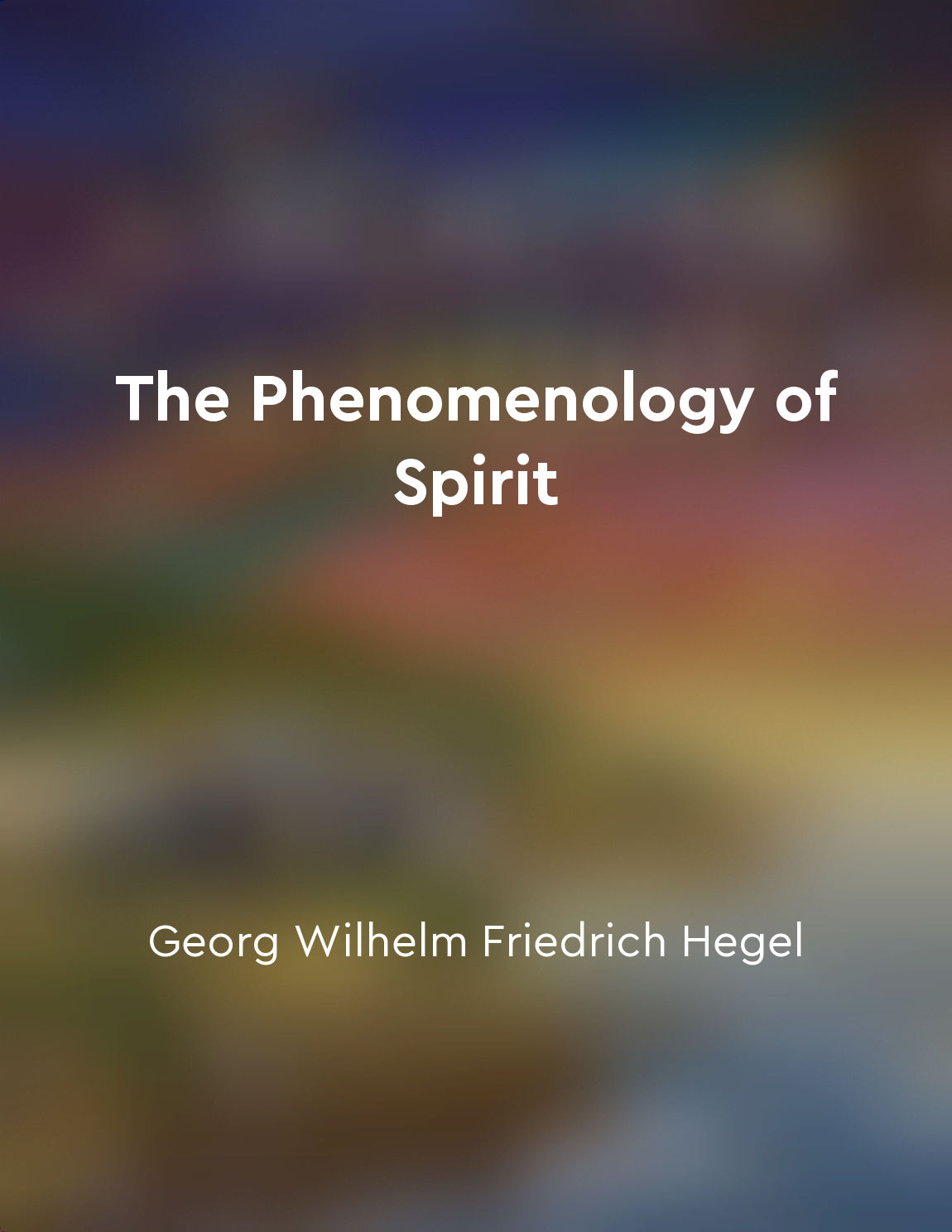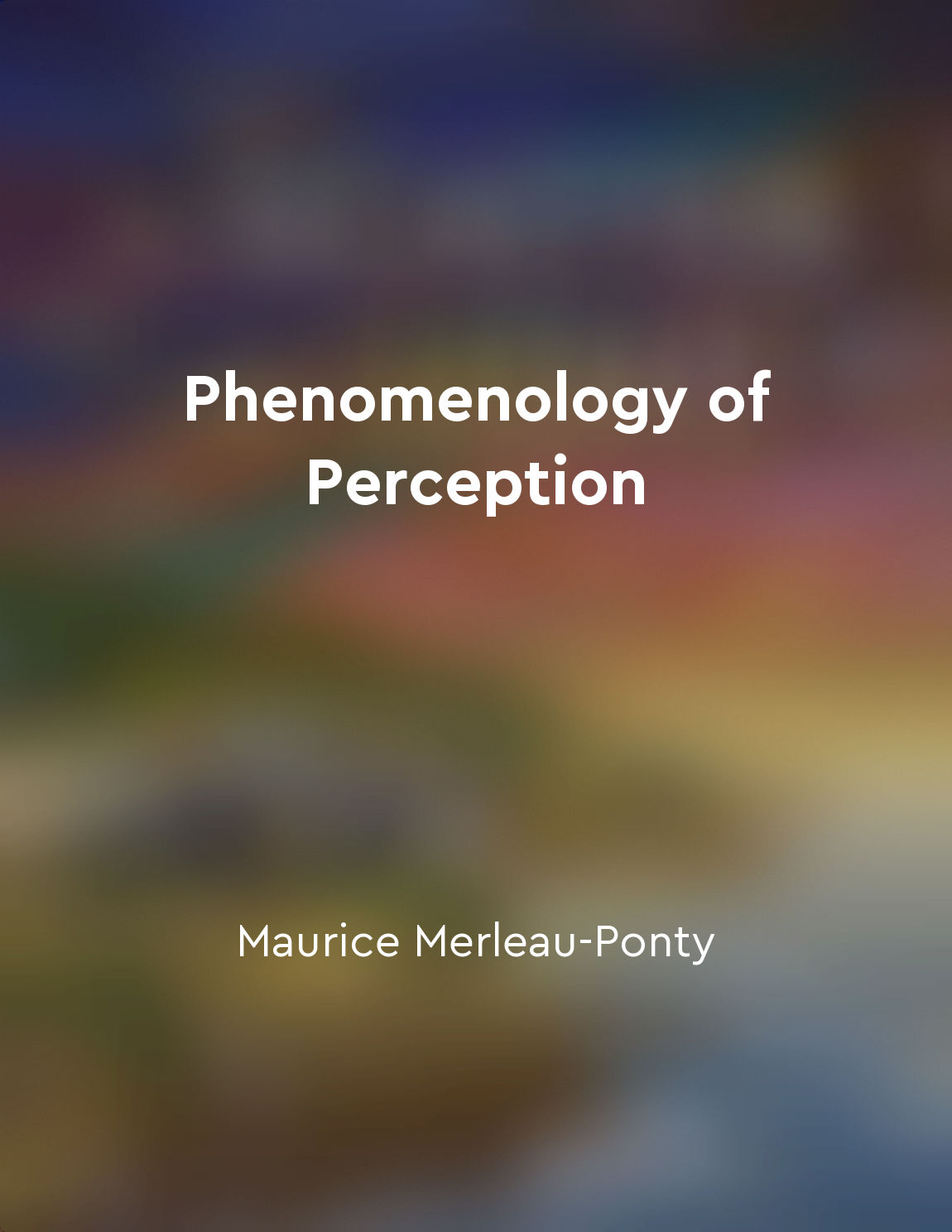Perception is a lived and embodied practice from "summary" of Phenomenology of Perception by Maurice Merleau-Ponty
Perception is not a passive process that occurs solely in the mind; rather, it is deeply intertwined with our lived experiences and the physicality of our bodies. Our perceptions are not isolated mental events but are rather embedded in the world around us, shaped by our bodily interactions with our environment. As Merleau-Ponty explains, our bodies are not just objects in the world but are fundamental to our experience of that world; they are the means through which we engage with and make sense of our surroundings. Through our bodies, we are able to actively explore and interact with the world, shaping our perceptions in the process. Our bodily movements, gestures, and sensations all play a crucial role in how we perceive and understand the world. For example, the way we move through space, the tactile sensations we experience, and the bodily responses we have to different stimuli all contribute to our perceptions of the world around us. Our bodies are not just passive vessels through which we receive sensory information; rather, they are active agents that shape and mediate our experiences. Moreover, our perceptions are not static but are continually evolving as we engage with the world around us. Our bodily interactions with our environment shape and transform our perceptions over time, leading to new ways of understanding and experiencing the world. As Merleau-Ponty argues, perception is not a fixed and unchanging process but is instead a dynamic and ongoing practice that is deeply intertwined with our lived experiences and bodily interactions. In this way, our perceptions are not simply subjective mental events but are rooted in the lived and embodied practices that shape our engagement with the world. Our bodies are not just passive observers of the world but are active participants in the process of perception, shaping and being shaped by our interactions with our environment. By recognizing the embodied nature of perception, we can gain a deeper understanding of how we experience and make sense of the world around us.Similar Posts
Theory of Induction
The Theory of Induction is concerned with the justification of beliefs about the future or the unobserved based on past experie...
Mindfulness supports children's cognitive development
Mindfulness practices can have a profound impact on children's cognitive development. When children learn to pay attention to t...

Unity of opposites
The concept of the unity of opposites is crucial in understanding the development of consciousness. It is through the process o...
Mental acts are not hidden processes
According to Ryle, mental acts are often mistakenly viewed as hidden processes. This misconception arises from the tendency to ...
Philosophy is the study of fundamental questions
Philosophy is a discipline that delves into the fundamental questions about existence, knowledge, values, reason, mind, and lan...
Cosmological argument posits a necessary being
The concept of the Cosmological argument positing a necessary being is a fundamental aspect of metaphysical inquiry. This argum...
Psychological triggers: tap into cognitive processes
Psychological triggers are powerful tools that marketers can use to influence consumer behavior. By tapping into cognitive proc...
Objectification enables analysis of phenomena
The process of objectification plays a crucial role in enabling the analysis of phenomena within the realm of phenomenology. Ob...

